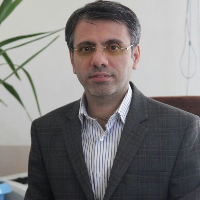Political Culture and its Implications for Development: An Ethnography of Sunni Clergy in Sanandaj
An examination of the orientations and social, cultural, and political activities of the clergy in Kurdistan underscores their active role in the social system. The concept of political culture can help understand the social and political inclinations. According to Tessler (2011), the analysis of political culture entails the examination of the type of participation and practical involvement of people in political and social life, along with their orientations towards diversity and pluralism. Despite the increasing significance of political culture for development as well as social and political participation in Iranian society, there has been a notable absence of research on the political culture of clerics and its implications for social order and change. Considering the pivotal role of religious communities in the collective consciousness of Kurdistan and the interconnection of religion with ethnicity, identity, and politics, it becomes imperative to examine the role and agency of clerics in instigating social, political, and cultural changes. Focusing on the Sunni clergy in Sanandaj, the present study aimed to understand the clergy’s meaning-making system and interpretation of sociopolitical spheres in order to examine the dimensions and types of their political culture and its implications for cultural, social, and political development of Kurdistan Province.
Literature Review:
A review of empirical studies reveals a gap in the literature on the connection between religion and the status of Sunni Kurdish clerics, as well as their practical involvement in political and social aspects of their community. It seems that there is no comprehensive study addressing the civic and political activism as well as the political culture of the Sunni clergy in Kurdistan. The present research endeavored to fill this void by adopting an innovative and exploratory approach. Mark Tessler’s typology of political culture orientations stands out due to its integrated nature and its focus on the theoretical literature of political culture, particularly in the context of Islamic countries, thus proving to be more relevant to the current study. Tessler’s definition of political culture encompasses both normative and behavioral aspects. The normative or pluralism/diversity dimension involves two variables: support for gender equality and political tolerance. The behavioral or the involvement dimension encompasses interpersonal trust, civic participation, political interest, and political knowledge (Tessler, 2011, p. 172). Moreover, Tessler classifies political culture in Islamic societies into four types: democratic, indifferent, activist, and parochial.
The present study used the ethnographic method and the interviews with 40 Sunni clerics in Sanandaj. A combination of theoretical and purposive sampling, along with maximum variation sampling, was used to select a sample of individuals aged from 30 to 65 years. Concerning the data analysis, ethnography adheres to analytical induction and grounded theory as an overarching, useful strategy (Strauss & Corbin, 1990).
The interview results made clear that over half of the interviewed clerics did not appreciate alternative thoughts and the benefits of diverse lifestyles. They would not accept pluralism and diversity in political–cultural opinions, nor would they support gender equality. Concerning the involvement dimension, the interviewees exhibited restricted participation in both political and social spheres, and their level of interpersonal trust was notably limited. According to the research results, the political culture orientation of the interviewees can be characterized as limited and parochial.
The interpretive analysis of the political culture of the sampled clerics indicates that the limited political culture is not substantially aligned with development in cultural, social, and political arenas. The limited political culture fails to foster a generalized social capital, multiculturalism, and the openness of civil society. In certain instances, it can impede cultural and social change by hindering the potential for making demands, advocating corrective actions, and pursing political reform. Considering the influence of lived experience and political opportunities on political culture, it seems necessary to institutionally recognize Sunni clerics, expand political opportunities, and foster increased openness within institutional and structural channels. These measures can lead to a more inclusive political culture, thus facilitating a shift towards a democratic political culture.
- حق عضویت دریافتی صرف حمایت از نشریات عضو و نگهداری، تکمیل و توسعه مگیران میشود.
- پرداخت حق اشتراک و دانلود مقالات اجازه بازنشر آن در سایر رسانههای چاپی و دیجیتال را به کاربر نمیدهد.


